Written by Dr. Emily R. Thornton, PhD, LCADC , Last Updated: November 13, 2025
This comprehensive resource directory provides 40+ vetted organizations supporting substance abuse counselors working with marginalized groups, including BIPOC communities, LGBTQIA2S+ individuals, incarcerated persons, unhoused populations, youth, and veterans. All resources include direct links to free or low-cost services, many of which offer 24/7 crisis support.
Table of Contents
- SAMHSA Support Programs
- General Resources for Marginalized Groups
- Resources for BIPOC Communities
- Resources for LGBTQIA2S+ Individuals
- Resources for Incarcerated Individuals
- Resources for Unhoused Individuals
- Resources for Youth and Adolescents
- Resources for Veterans and Military Members
- Frequently Asked Questions
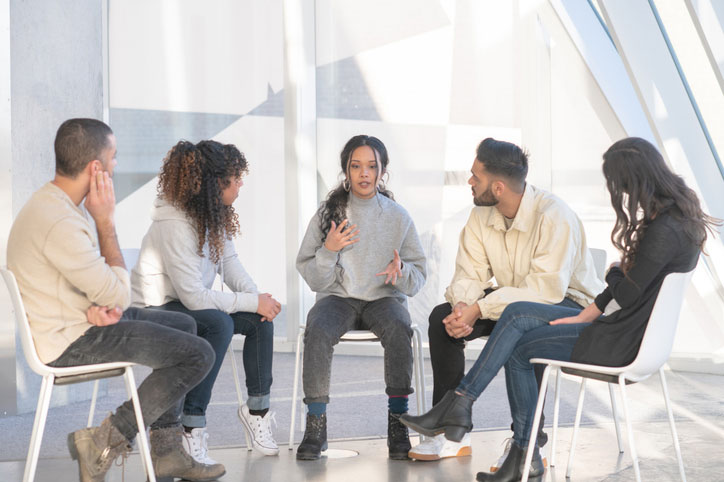
This guide compiles essential resources for helping marginalized groups achieve successful substance use disorder treatment and sustained sobriety, including Black, Indigenous, and People of Color (BIPOC); the LGBTQIA2S+ community; unhoused individuals and families; incarcerated and formerly incarcerated individuals; children and adolescents; and military veterans.
No matter how dedicated you are, no matter how many hours you work, and no matter how elite your education has been, no substance use disorder counselor anywhere can deliver all the care that a patient needs.
As you quickly learn on the job, addiction saps every kind of capability from people experiencing it. They lose their jobs and are evicted from their homes. They lose their sense of self-preservation and even the healthcare they rely on, no longer prioritizing healthy food. They may even lose the most basic resources for self-care and hygiene.
When this happens to people who are part of groups marginalized by society and already struggling under socioeconomic challenges and discrimination, the impact is compounded. And when those people come under your care, you had better have some resources to turn to for helping them.
We've got you covered.
Whether you're already practicing professionally or still getting your education and working toward credentials, you'll find this list of resources helpful. Between them, you'll find guidance to help you better understand the challenges your clients face and the direct assistance they need to overcome those challenges. It's all here in one place for you to reference quickly and share easily.
Support Programs From The Substance Abuse and Mental Health Services Administration (SAMHSA)

The federal government hasn't been asleep at the wheel when dealing with the challenges of substance abuse. SAMHSA is the agency that has primary responsibility for addressing chronic addiction and co-occurring issues, and it's a juggernaut with a stack of well-funded initiatives you can turn to for extra help supporting marginalized groups.
SAMHSA is not only behind many of the block grants that subsidize other relief and support efforts here, but it also directly administers many programs beneficial to SUD counselors and their patients. These are among the most helpful for marginalized communities.
SAMHSA National Helpline
Because you can't be everywhere at once or treat every kind of addiction, this confidential, 24/7/365 resource should be splashed all over your business cards and notebooks. It's a free referral service for individuals and families dealing with substance use disorders, with a national catalog of treatment facilities, support groups, and other community assistance organizations. This is one of the most essential crisis resources you can share with clients who need immediate support.
GAINS Center for Behavioral Health and Justice Transformation
GAINS aims at the common crossover point between substance use disorders and the criminal justice system. Incarcerated individuals can be some of the most difficult to reach and treat for SUD counselors. GAINS offers trauma training specialized in this field, provides a treatment court locator for diversion programs, and offers connections to virtual learning communities and communities of practice to put you in touch with other counselors facing the same challenges.
Homeless & Housing Resource Center
Delivering high-quality training in evidence-based re-housing and treatment for substance use and co-occurring disorders, HHRC partners with national homelessness experts to help you better inform your practice with unhoused individuals. Through webinars, toolkits, and online training, you can merge housing stability and recovery efforts to deliver a better shot to this marginalized community.
National Center of Substance Abuse and Child Welfare
There's no debate in the human services community: children are the most vulnerable population to work with and the hardest to cope with emotionally. NCSACW provides information, expert consultation, training, and technical assistance to SUD professionals to improve safety, consistency, and recovery outcomes for kids, their parents, and families. This is particularly valuable for counselors pursuing specialization in adolescent addiction counseling.
State Opioid Response/Tribal Opioid Response Technical Assistance
This partnership between SAMHSA and the American Academy of Addiction Psychiatry provides free educational resources and training to states, communities, and individuals. With Native American communities hit hard by the opioid epidemic, this extra training through the Opioid Response Network can make a big difference for your clients.
Tribal Training and Technical Assistance Center
Along the same lines, the dedicated TTAC resource offers a strategic cultural framework and training for mental and substance use disorders and suicide prevention among SUD counseling providers with Native American patients.
General Resources for Supporting Marginalized Groups in Addiction Counseling
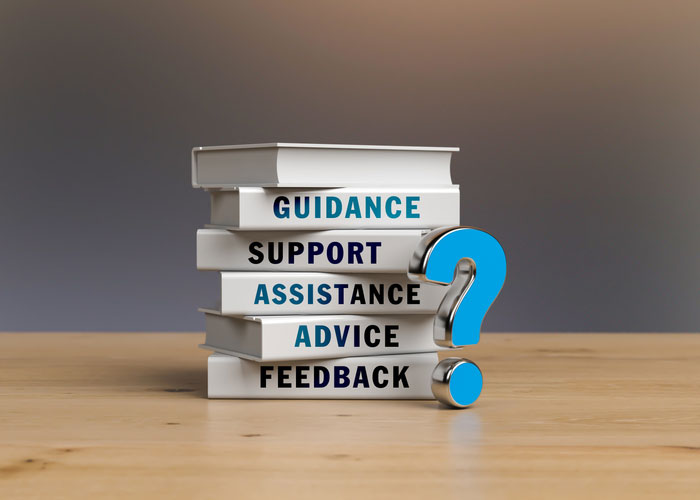
While every individual is unique and demands individual respect and assessment, and every marginalized group is often marginalized in its own unique way, there are still some general skills that counselors will find helpful in dealing with any of them.
The Association For Addiction Professionals' Cultural Humility Demographic-Specific Resources
NAADAC is an organization that offers more than just professional certification for substance abuse counselors. It's also a clearinghouse for the latest treatment techniques, advocacy efforts, and educational resources. Their series on cultural humility and treatment considerations for disadvantaged populations offers a rich well of learning materials and ideas for counselors working with marginalized communities.
American Foundation for Suicide Prevention
One thing almost all marginalized populations have in common is an elevated risk of suicide when experiencing substance use disorders. So suicide prevention should be on the radar of every SUD counselor working with every kind of group on this list. AFSP offers a 24/7 lifeline for your clients when you can't be available, as well as resources for learning more about suicide prevention to integrate with your own counseling efforts. For additional mental health support resources, please refer to our comprehensive mental health resource guide.
Resources for Substance Abuse Counselors Working With Black, Indigenous, and People of Color (BIPOC)
There are wide disparities in patterns of addiction between various cultural and ethnic groups that can make treatment a challenge for even the best-educated SUD counselor. According to 2022 NSDUH data, rates of illicit drug use in the past year were 29.6% for multiracial individuals and 27.6% for American Indian or Alaska Native individuals. In Asian communities, the rate was lower at 11.1% according to 2022 NSDUH data. Yet cultural inhibitions against treatment can make it far more difficult for Asian patients to engage with rehab programs fully.
These differences make culturally appropriate, specifically tailored resources all the more critical for SUD counselors dealing with BIPOC populations. In addition to the several SAMHSA resources listed above, you can find excellent information and resources for treating BIPOC individuals and communities from the following sources.
Resources to Support Black People and Communities
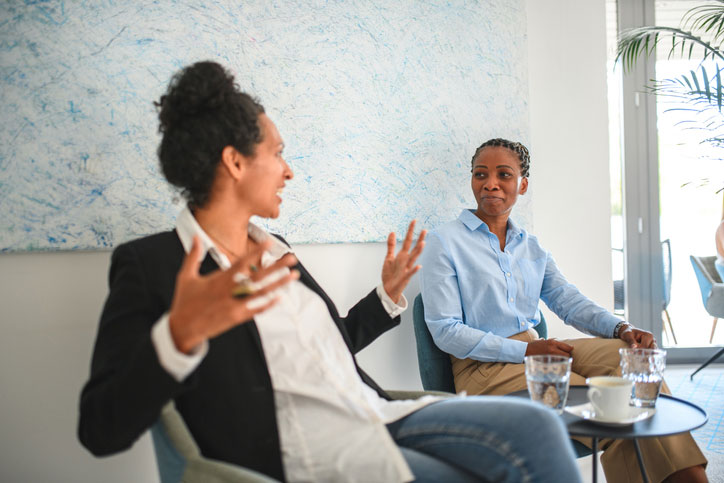
Therapy For Black Men
Offering both free and paid counseling for Black men who need coaching and mental health therapy, this is a good resource for SUD counselors who need assistance with both psychological treatment and general coaching on action plans to achieve other life goals.
Black Girls Smile
Because Black women also experience co-occurring mental health issues with addiction, this program offers similar resources for women. With gender-responsive and culturally affirming education and support, you can help bring young Black female patients into a better place.
SAFEProject Addiction and Mental Health Resources for the Black Community
Stop the Addiction Fatality Epidemic is an equal opportunity, life-saving organization for addiction. Still, they've put together a comprehensive list of resources that are focused on and available to counselors working with the Black community. Culturally appropriate treatment and ideas are just a click away.
American Psychological Association: Substance Abuse and Addiction in the African-American Community
Recognizing the relative difficulty for Black individuals to get into and complete therapy programs of all kinds, the APA publishes a series on ethnicity and health in America that examines the intersections between criminal justice, addiction, and treatment systems in the United States. This information will equip you with the data you need to both deliver more effective treatment and act as an advocate for clients in this population.
Resources to Support Hispanic and Latino People and Communities
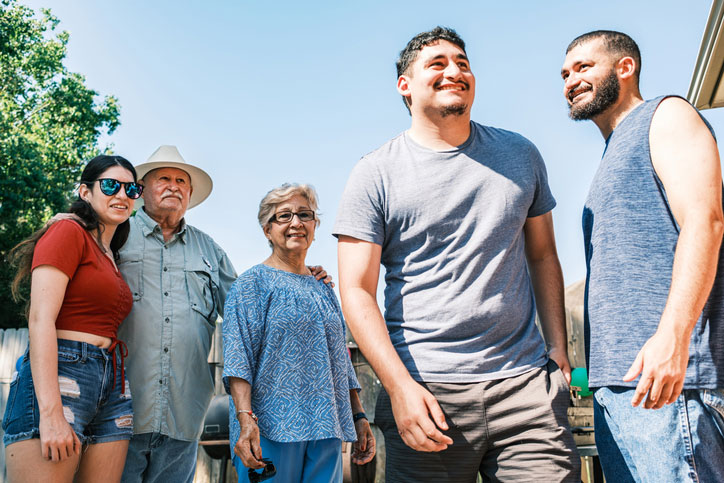
The Latino Commission
The Latino Commission has been operating addiction recovery programs in the San Francisco area for over 30 years. It's a community-driven effort that works to prevent relapses, helps to build support networks, and strengthens Latino families in recovering from addiction.
National Latino Behavioral Health Association
Through the Bob Martinez Center of Innovation in National Behavioral Health, NLBHA advances and conducts training for counselors of all types of behavioral care serving Latino populations.
SAMHSA Spanish Language Resources
Many of SAMHSA's existing resources for SUD counseling are also available in Spanish. This is a list of selected publications and on-call resources that can offer materials and assistance for Spanish-speaking clients.
American Psychological Association: Substance Abuse/Addiction in the Latino-Hispanic Community
The APA's Ethnicity and Health in America drills down into the specific issues fueling substance use disorders in the Latino and Hispanic community, offering data and insights on treatment valuable for SUD counselors working with this population.
Resources to Support Asian People and Communities
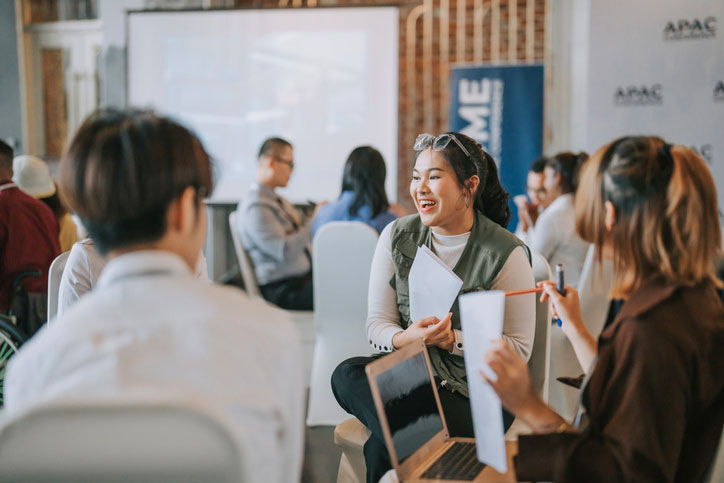
Asian American Drug Abuse Program
AADAP is an organization offering direct treatment for drug and alcohol addiction in Asian individuals and communities. Operating out of Los Angeles since 1972, they have extensive experience in addressing the unique pressures and challenges of SUD treatment within Asian cultural contexts.
Project Lotus
Understanding that Asian-Americans are three times less likely to seek help compared to others, Project Lotus was started to reduce the stigma of mental health and substance abuse treatment in a community that often suffers in silence. Webinars and workshops offered here can help you get past the wall and connect with your Asian clients.
Recovery Dharma
Although it's not specifically oriented or restricted to Asian patients, the use of traditional Buddhist practices and principles in the addiction recovery process may resonate more with populations steeped in historically Buddhist culture. Discover the essential information on how Buddhism can inform the recovery process here.
Resources to Support Indigenous People and Communities

White Bison
Support systems for Native Americans with substance use disorders are historically lacking, but White Bison aims to put an end to that. With recovery, sobriety, and general wellness learning resources that are culturally based, this organization offers extensive resources to support Native clients.
Indian Health Service
The federal IHS has a responsibility to address all sorts of health and wellness issues for Native American and Alaska Native populations. They have both federal resources and boots on the ground in these communities, which makes them an excellent resource for assisting with counseling and co-occurring disorders with your Native American clients.
One Sky Center
As a national resource center for American Indian and Alaska Native health issues, One Sky Center offers presentations and publications on providing culturally appropriate treatment for this population. A special Native-to-Native mentorship program may help you line up peer supports for your clients as well.
SAMHSA Office of Tribal Affairs and Policy
OTAP is SAMHSA's primary point of contact for any tribal governments, organizations, or state or federal agencies dealing with behavioral health issues in the Native American community. Their mission is to promote the efficient and effective delivery of resources and services for prevention, treatment, and recovery support in culturally sensitive ways. They offer technical assistance and training directly to tribal communities, as well as funding opportunities that can be applied to substance abuse counseling programs.
Resources for Addiction Counselors Working With Lesbian, Gay, Bisexual, Transgender, Questioning, Intersex, Asexual, and Two-Spirit Individuals (LGBTQIA2S+)
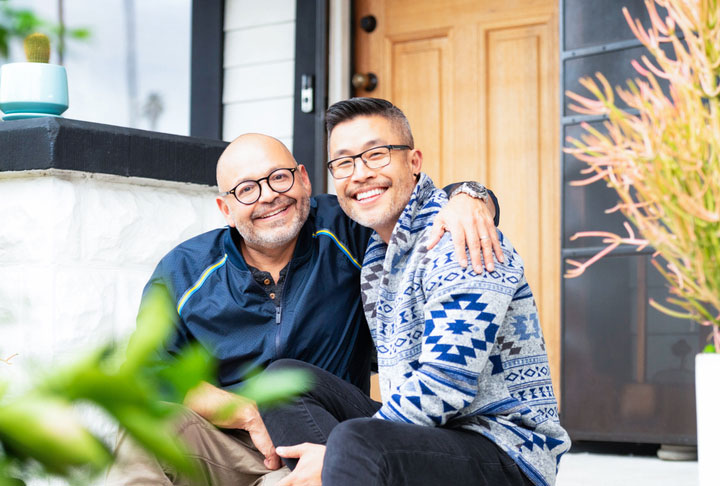
There is relatively little data and less focus on how drug and alcohol addiction impacts individuals identifying as LGBTQIA2S+.
Yet what substance abuse counselors do know is that this is a population that is already at high risk of abuse, mental health issues, and suicide—all problems that are also caused or made worse by substance use disorders.
So specialized assistance in working with LGBTQIA2S+ patients of all ages and ethnic groups is always welcome. These resources will get you started.
The Trevor Project
The primary goal of The Trevor Project is suicide prevention among LGBTQ+ youth. But with expertise in crisis management and a strong awareness of overlapping risk factors contributing to substance use and suicide among LGBTQ+ youth, it's also a strong resource for SUD counselors working with gender-queer or questioning kids.
Gay and Lesbian Alliance Against Defamation
GLAAD has been around for so long that they hadn't invented the BTQ+ acronym yet when they were coming up with a name. Nonetheless, the organization offers one of the best resource clearinghouses for transgender people in crisis or facing legal difficulties. You can consult their list for various types of resources when your LGBTQ+ clients need more kinds of help than you can offer.
Partnership To End Addiction: LGBTQ+ and Family Substance Use Information
One of the significant challenges for LGBTQ+ individuals with substance use disorders is that they're less likely to have family support in ending the cycle of addiction. This website provides information and guidance to families who may already be experiencing rifts but want to support their loved ones, regardless of their gender identity.
Faces & Voices of Recovery LGBTQ+ Recovery Resources
Offering an extensive catalog of both online communities and local safe spaces for LGBTQ+ individuals trying to kick an addiction, this page provides places to turn for help, nonprofits, no matter where you practice.
Gay & Sober
A dedicated nonprofit organization that serves LGBTQ people who are recovering from substance use disorders, Gay & Sober is packed with sobriety resources and is behind many events to help LGBTQ+ individuals connect with others going through similar struggles. A meeting directory with LGBTQ+ supportive groups for AA, NA, and AL-ANON is an excellent resource for SUD counselors everywhere.
Resources for Substance Use Disorder Counseling for Incarcerated and Recently Released Individuals
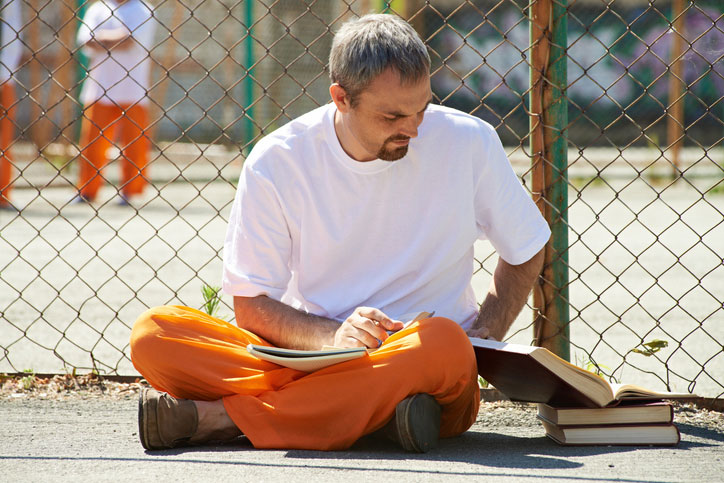
The war on drugs has absolutely packed America's criminal justice system with people who often need addiction treatment a lot more than just the punitive treatment they're getting.
The National Institute on Drug Abuse estimates that around 65 percent of the U.S. prison population has an active substance use disorder. Another 20 percent committed their crimes under the influence of drugs or alcohol. That's a big chunk of people, both actively incarcerated or who have recently been paroled or released, who have significant trouble with addiction.
Yet it's a population that needs your assistance more than most. Without agency or freedom, prisoners are reliant on the very system they're trapped in to provide the help they need to kick addiction.
Most of the resources for fighting substance use disorders in correctional settings come through various state prison systems, so it's always a good idea for SUD counselors to check there first. However, these national resources and toolkits can help you regardless of your location in the United States. For counselors interested in this specialization, consider exploring career paths in criminal justice and addiction counseling.
Bureau of Prisons Substance Abuse Treatment
Dealing first-hand with issues facing inmates with substance use disorders has given the federal BOP a lot of experience in the unique challenges of this population. You can find the options for treatment within the federal system listed here, from Nonresidential Drug Abuse Treatment to the intensive Residential Drug Abuse Program. Understanding the options helps you effectively advocate for your clients who are stuck in the system.
Prison Activist Resource Center
PARC has a comprehensive list of legal, health care, and educational resources that are helpfully organized both by subject and by state. When your incarcerated clients need extra assistance, chances are you'll find the best options here.
American Society of Addiction Medicine Treatment in Correctional Settings Toolkit
Stepping into a jail or prison setting for the first time can be intimidating for new SUD counselors. ASAM helps take some of the mystery out of the process with their resource toolkit for providing both medication-assisted and other therapeutic approaches in correctional settings.
National Association of Counties Opioid Treatment in Incarcerated Populations
Counties primarily manage jail systems across the country, so it makes good sense that NACO is a leader in delivering resources for combating opioid use disorder in incarcerated populations. Medication-assisted treatment modalities, as well as advocacy support, are available here to help you get effective programs off the ground in your community jails.
Resources for Unhoused Individuals With Substance Use Disorders
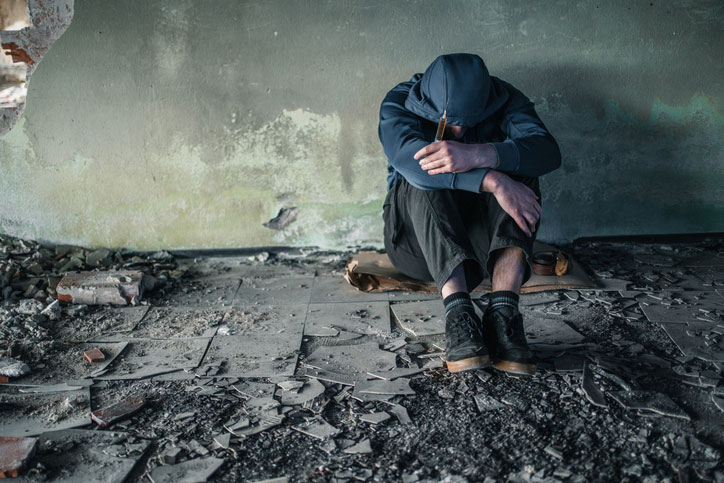
A 2023 survey by the United States Conference of Mayors found that up to 38% of people experiencing homelessness have alcohol use disorder, depending on the population studied, and another quarter use other harmful and addictive substances.
Yet this is also a population with the least access to resources for overcoming addiction. Substance use disorder and homelessness can become an endless feedback loop. The drugs disconnect people from the basic skills required to sustain themselves, while at the same time providing the only escape from the misery of life on the streets. In fact, in the same survey, almost 70 percent of cities pointed to substance abuse as one of the primary factors in their homelessness issues.
That makes helping unhoused individuals with substance use disorders particularly difficult. And that means these resources are handy.
SAMHSA Treatment for Individuals Experiencing Homelessness
The TIEH program is designed to expand access to mental health and substance use disorder treatment through strategic grants. Money is the ultimate resource for delivering evidence-based treatment, peer support, and other supportive services, so this is an excellent program for your organization to tap into if the unhoused population is your target.
SSI/SSDI Outreach, Access, and Recovery
SAMHSA also operates SOAR, which is designed to help individuals experiencing homelessness access other federal benefits to support their recovery. This site offers a free online course and a resource library to address questions about paperwork, funding, and the appeals process for accessing SSI and SSDI resources, which are key to this vulnerable population.
United States Department of Housing and Urban Development (HUD) Continuum of Care
HUD's Continuum of Care resource page provides a quick, one-stop shopping experience for finding homeless care, affordable housing options, and special needs housing in any state, city, or town in America. When you need to know the closest official resources for getting your client some stability in their lives to get them out of the orbit of drugs, this should be your first stop.
The National Association of Free & Charitable Clinics (NAFC)
NAFC offers a similar collection of resources for unhoused individuals seeking treatment, but in the realm of healthcare. Addressing such critical primary needs is outside the scope of addiction counselors, but you can get your clients to the right place for such care quickly using this list.
Resources for Marginalized Youth, Children, and Adolescents Experiencing Addiction

Kids are uniquely vulnerable to substance abuse for a variety of reasons.
First, since they're still physically developing, a variety of substances that may be marginally harmful to adults can have serious, life-changing consequences when kids ingest them. Second, they're susceptible to overdose at relatively low dosages and have little appreciation for the dangers of various substances. Finally, especially as they reach adolescence, they're in a phase of their lives where their brains are encouraging experimentation and rebellion, often overriding better judgment.
So substance use disorder counselors working with this population can use every tool available. These resources may be your skey to success
Substance Use Prevention Resources for Youth and College Students | SAMHSA
SAMHSA, once again, recognizes the threat and has compiled a wide range of publications and tip sheets for both children and SUD counselors who work with them. More importantly for this very online and mobile-device-using demographic, they offer apps that provide the same information in an easy-to-absorb format.
American Academy of Child & Adolescent Psychiatry Substance Use Resource Center
AACAP is primarily an organization for practicing psychiatrists. Still, their substance use resource center has a wealth of information and resources helpful to both SUD counselors and to families afflicted by substance use disorders.
High Risk Substance Use in Youth | Adolescent and School Health | CDC
The Centers for Disease Control and Prevention doesn't have a lot to do with treatment, but they both track youth substance use rates and put together a set of valuable resources for parents and counselors working with parents. These include educational curriculum plans, parent engagement, and links between substance use and sexual risk behaviors in teens.
National Association for Children of Addiction
One of the most significant risk factors for addiction in youth and teens is having a parent with a substance use disorder. Getting ahead of the dysfunction that can lead kids down the same path is crucial for SUD counselors. NACOA understands the risks and offers training and pre-built children's programs to help with the work.
CRAFFT Substance Use Screening Tool for Adolescents
Aimed squarely at clinicians, CRAFFT offers a quick, evidence-validated screening tool to identify adolescents at risk of substance use disorders. It's a valuable addition to the kit of substance abuse counselors who have to evaluate large numbers of kids quickly and accurately.
Resources for Veterans and Military Service Members With Substance Use Disorders
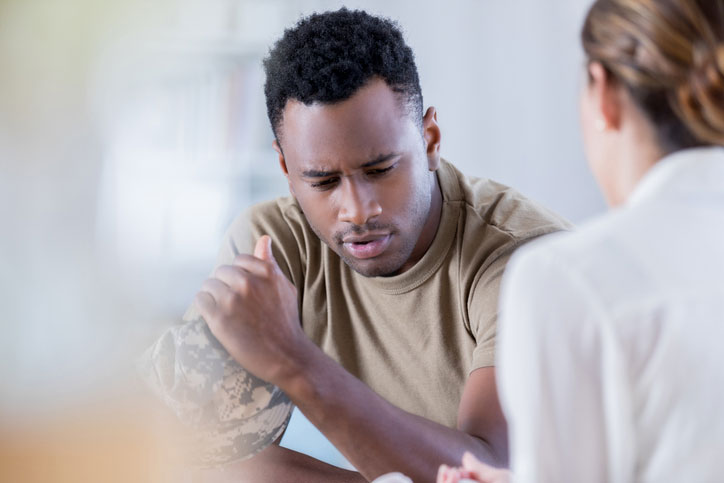
It's a fact that the American military is disproportionately made up of minorities already, who therefore fall into one or more of the disadvantaged groups we've already listed here.
But military service itself can be a significant risk factor for drug and alcohol abuse. And the outcomes for veterans who are struggling with addiction can be worse than for any other group.
Veterans are nearly twice as likely to die from accidental overdose compared to the general population, per VA and CDC data.
But treating veterans for substance use disorders often runs into unique obstacles. On top of commonly co-occurring disorders like PTSD and depression, many service members feel dissociated from the very society they volunteered to protect. That makes it challenging for ordinary SUD counselors to connect with and influence them. If you're a veteran or military spouse considering this career path, explore our comprehensive guide for veterans on becoming a substance abuse counselor.
SAFE Programs For Veterans, Active Duty Service Members, Families
Stop the Addiction Facility Epidemic understands the tragedy that comes when a person who has volunteered to serve in defense of their country instead falls to the scourge of substance use disorders. The organization also recognizes that counseling for veterans requires a distinct skill set, mindset, and resources compared to counseling for other civilians. Their Virtual Veterans weekly recovery meetings, Military Wellness Programs, and Emotional Ruck workshop for families and caregivers harness the positive elements of military service and turn them into an advantage for treatment.
Substance Use Treatment For Veterans | Veterans Affairs
The Department of Veterans Affairs may be your best first stop as an addiction counselor working with veterans. Recognizing the central problem in the population it's dedicated to serving, the VA provides 24/7 access to crisis counseling, medical detox programs, and comprehensive co-occurring disorder treatment that bundles PTSD and depression therapy with substance use disorder counseling.
NAADAC Addiction Treatment in Military & Veteran Culture Certificate
One of the best ways to enhance your veteran counseling skills is to establish the proper credentials for working with this population. NAADAC offers a specialized online training series, supplemented by quizzes, to ensure you have a solid command of the material. You'll learn invaluable information about veteran culture, addiction and transition issues, and core clinical competencies required for treating vets and their families.
Smokefree Veterans
Part of a larger government program designed to help people kick smoking, Smokefree Veterans is a free resource explicitly aimed at vets trying to beat the nicotine habit. Although cigarettes usually rank toward the low end of things, SUD counselors are concerned about the military being an incubator for smoking addiction, and the health risks over the long term are real. Anything you can offer to help veterans quit smoking can be beneficial.
VetChange
Another offering directly from the VA, VetChange is a revolutionary app designed to help veterans lower their alcohol dependency, particularly as it relates to dealing with PTSD. It can be used in conjunction with other therapies, so feel free to get your clients on it as another angle of attack on alcoholism.
Frequently Asked Questions About Resources for Marginalized Groups
What types of resources are available for substance abuse counselors working with marginalized populations?
Resources include 24/7 crisis hotlines (such as SAMHSA's National Helpline), cultural competency training programs, population-specific treatment facilities, grant funding opportunities, clinical toolkits for correctional settings, housing assistance programs, and nonprofit organizations. Most federal resources through SAMHSA are available at no cost. At the same time, nonprofit organizations offer both free and sliding-scale services.
How do I find culturally appropriate treatment resources for BIPOC clients?
Start with population-specific organizations like the Asian American Drug Abuse Program, White Bison for Native communities, the Latino Commission, or Therapy for Black Men. The APA's Ethnicity and Health series provides research-backed approaches for different cultural groups. NAADAC's cultural humility resources offer training on adapting treatment approaches to respect cultural values and reduce barriers.
Which resources offer 24/7 emergency support for clients in crisis?
The SAMHSA National Helpline (1-800-662-4357) provides 24/7/365 confidential referral services. The Trevor Project offers 24/7 crisis support for LGBTQ+ youth. The American Foundation for Suicide Prevention operates a continuous lifeline. The VA provides round-the-clock crisis counseling for veterans. Keep these numbers readily available for clients experiencing an acute crisis.
Are there specific resources for counselors working in correctional settings?
Yes. The GAINS Center specializes in the intersection of criminal justice and behavioral health, offering trauma training and treatment court locators. The Bureau of Prisons provides federal system treatment options. The American Society of Addiction Medicine offers a comprehensive toolkit for correctional settings. The National Association of Counties focuses specifically on opioid treatment in jail populations.
What support exists for unhoused individuals with substance use disorders?
SAMHSA's Treatment for Individuals Experiencing Homelessness (TIEH) program provides grants for integrated services. The SSI/SSDI Outreach, Access, and Recovery (SOAR) program helps clients access federal benefits. HUD's Continuum of Care offers housing location services nationwide. The National Association of Free & Charitable Clinics can connect unhoused clients to healthcare.
How can I help veteran clients who are struggling with both PTSD and addiction?
The VA provides comprehensive co-occurring disorder treatment, bundling PTSD therapy with substance abuse counseling. The VetChange app specifically addresses alcohol dependency related to PTSD. NAADAC offers a specialized certificate in Military & Veteran Culture to build counselor competency. SAFE Project runs Virtual Veterans recovery meetings and Emotional Ruck workshops for families.
What resources are available for treating adolescents and youth?
SAMHSA provides youth-focused prevention resources, including mobile apps. The American Academy of Child & Adolescent Psychiatry maintains a comprehensive substance use resource center. The CRAFFT screening tool helps assess adolescent risk quickly. The National Association for Children of Addiction (NACOA) offers programs specifically for children of parents with SUD.
Do these resources provide non-profit payment or insurance?
Most federal nonprofit AMHSA programs, CDC materials, BOP services) are free. Many nonprofit organizations offer free services or operate on a sliding-scale fee basis, depending on the ability to pay. Grant programs like TIEH provide funding to organizations serving marginalized populations. Always verify current fee structures when referring clients, as they may vary by location and funding availability.
Key Takeaways
- SAMHSA provides comprehensive federal programs, including 24/7 crisis hotlines, tribal opioid response networks, and homeless housing resources for marginalized populations.
- Culturally specific resources exist for BIPOC communities, with dedicated programs for Black, Hispanic/Latino, Asian, and Indigenous populations addressing unique treatment barriers.
- LGBTQIA2S+ individuals face elevated suicide risk and reduced family support, making specialized resources like The Trevor Project and Gay & Sober essential referral options. Sixty-five percent of incarcerated individuals have active substance use disorders, with federal and county programs offering specialized correctional treatment approaches.
- Unhoused populations face compounded challenges where up to 38% have alcohol use disorder (depending on the population studied), requiring integrated housing stability and recovery support services.
- Veterans experience nearly twice the accidental overdose death rate compared to civilians (per VA and CDC data), necessitating trauma-informed care that addresses co-occurring PTSD and depression alongside addiction.
Ready to Make a Difference in Marginalized Communities?
If you're passionate about serving vulnerable populations through substance abuse counseling, explore degree programs that emphasize cultural competency, trauma-informed care, and social justice approaches to addiction treatment.








